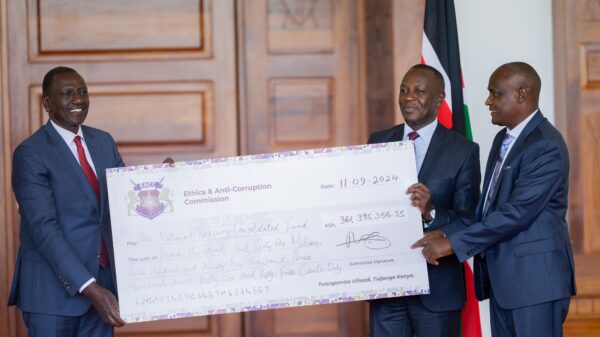
The Authority met with investors, private sector support agencies, public sector institutions and development partners to deliberate on the draft of the Kenya Investment Policy/FILE
NAIROBI, Kenya, Apr 3 – Kenya will soon begin to review incentives once every two years when the Kenya Investment Policy becomes operational.
The policy proposes a periodical review of existing incentives to evaluate their effectiveness.
Their effectiveness will be against a criterion that includes benefit to local communities, track record in attracting and retaining investors, impact on government revenues and effect on the environment.
“Following this review against the above specified criteria, the government may choose to discontinue incentives which it feels are not meeting stated development objectives but may not phase them out existing investors except as outlined in the incentive agreement granted to the investor upon the approval of the incentive,” Kenya Investment Authority Managing Director Moses Ikiara told investors Monday.
The Authority met with investors, private sector support agencies, public sector institutions and development partners to deliberate on the draft of the Kenya Investment Policy.
The policy is meant to guide attraction, facilitation, retention, monitoring and evaluation of private investments in the country.
Ikiara, told investors that the policy set to be implemented soon will streamline investments in the country as well as create a seamless coordination between the National and County Governments.
It will also address the critical issues of local content, minimum capital for foreign investors, host community- investor issues and an effective institutional architecture, among other important issues.
“The government recognises its role in ensuring that investment is beneficial to the nation and its citizens. This requires setting clear expectations regarding the role that investors can play in the development of the economy. This policy document seeks to clearly articulate such expectations or responsibilities to ensure coherence between the objectives of investors and those set by the government for the nation,” Ikiara noted.
Through this policy, the Authority hopes to increase the level of private investment to 24 percent of GDP by 2030 and elevate the country’s standing the ease of doing business index to top 50 and attaining a distance to frontier score of 80.


































